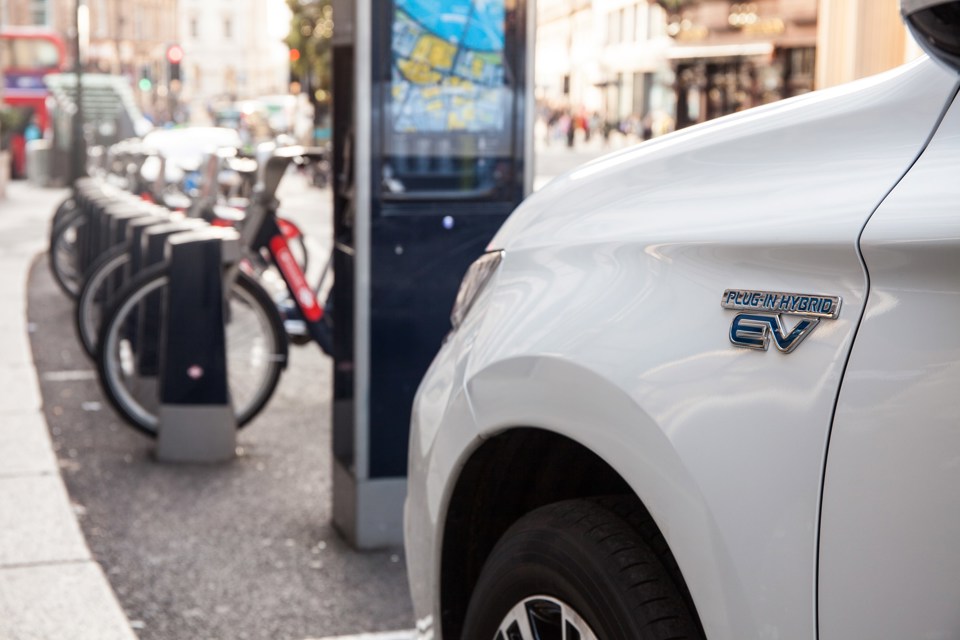The Mitsubishi Outlander plug-in hybrid continues to be the biggest seller in ultra-low carbon car and van market table with 21,708 of the vehicles licensed in the UK at the end of June 2016.
The Outlander makes up 33% of the total of 66,374 plug-in grant eligible vehicles on the road.
In second place after the Outlander comes the pure battery-electric Nissan Leaf at 12,837.
In third place is the BMW i3 (4,457) which is available with a choice of drive trains: pure battery electric or a range extended version (where a petrol internal combustion engine is used to recharge the battery on long journeys).
The Renault Zoe (4,339) is fourth most common, followed by the Mercedes-Benz C350e (3,337) which has leapt ahead of the Tesla Model S (3,312) and Volkswagen Golf GTE (2,657) to take fifth place.
The Outlander, Mercedes-Benz C350e and BMW 330e were the only three cars to increase their licensed numbers by more than a 1,000 in Q2 2016.
Four of the five vehicles with the highest growth in licensed numbers over the quarter were plug-in hybrid (PHEV) versions of regular cars:
1) MMitsubishi Outlander (PHEV) – 1,763 increase
2) Mercedes-Benz C350e (PHEV) – 1,439
3) BMW 330e (PHEV) – 1,113
4) Golf GTE (PHEV) – 687
5) Tesla S (pure battery powered) - 486
Steve Gooding, director of the RAC Foundation, said: “Getting more clean vehicles on the road is crucial to help tackle both climate change and poor air quality yet while there are a record 31.6 million cars on the UK’s roads, just 0.2% are ultra-green.
“At the start of the month MPs on the Environmental Audit Committee said they had no confidence in the UK achieving its long-term goals for greening the car fleet.
“Car companies selling ultra-green vehicles will be looking at these figures closely. On March 1 the maximum grant dropped from £5,000 per car to £4,500 and because of a new tiered system, some grants – including those for the Outlander – are now no more than £2,500.
“In a rapidly evolving, but still fledgling market it is hard to discern trends but with the plug-in car grant scheme due for another revision within six months the concern must be that the market will remain fragile, and so we are quite some way from being able to drop the grants completely.
“One hopeful sign is that there is an ever increasing number of green vehicles in the showroom and some manufacturers like VW have publicly pinned their hopes on alternatively-fuelled cars.”
On September 1 the Environmental Audit Committee published its report on Sustainability in the Department for Transport:
Mary Creagh MP, chair of the committee, said: "The uptake of ultra-low emission vehicles like electric cars, is too low to meet the UK's climate change targets at the lowest cost to the public.
"Air quality targets that were supposed to be met in 2010 won't be hit until 2020 at the earliest. And it's been almost a year since we discovered VW had fitted cars with cheat devices, but government has still to decide what action to take against the company."


















Miccon - 14/09/2016 14:51
So, with a third of total sales and hence on top of the ultra low carbon car and van league table, sits an 4WD, SUV with a relatively ancient transmission and drivetrain , tipping the scales at nearly 2 tonnes. The Mitsubishi Outlander PHEV is more an exercise in reducing tax than reducing real-world emissions.